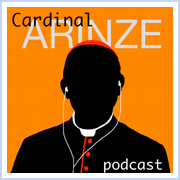From: Matthew 12:1-8The Question of the Sabbath[1] At that time Jesus went through the grainfields on the Sabbath; His disciples were hungry, and they began to pluck ears of grain and to eat. [2] But when the Pharisees saw it, they said to Him, "Look, Your disciples are doing what is not lawful to do on the Sabbath." [3] He said to them, "Have you not read what David did, when he was hungry, and those who were with him: [4] how he entered the house of God and ate the bread of the Presence, which it was not lawful for him to eat nor for those who were with him, but only for the priests? [5] Or have you not read in the law how on the Sabbath the priests in the temple profane the Sabbath, and are guiltless? [6] I tell you, something greater than the temple is here. [7] And if you had known what this means, `I desire mercy, and not sacrifice,' you would not have condemned the guiltless. [8] For the Son of Man is Lord of the Sabbath."
_____________________
Commentary:2. "The Sabbath": this was the day the Jews set aside for worshipping God. God Himself, the originator of the Sabbath (Genesis 2:3), ordered the Jewish people to avoid certain kinds of work on this day (Exodus 20:8-11; 21:13; Deuteronomy 5:14) to leave them free to give more time to God. As time went by, the rabbis complicated this divine precept: by Jesus' time they had extended to 39 the list of kinds of forbidden work.
The Pharisees accuse Jesus' disciples of breaking the Sabbath. In the casuistry of the scribes and the Pharisees, plucking ears of corn was the same as harvesting, and crushing them was the same as milling--types of agricultural work forbidden on the Sabbath.
3-8. Jesus rebuts the Pharisees' accusation by four arguments--the example of David, that of the priests, a correct understanding of the mercy of God and Jesus' own authority over the Sabbath.
The first example which was quite familiar to the people, who were used to listening to the Bible being read, comes from 1 Samuel 21:2-7: David, in flight from the jealousy of King Saul, asks the priest of the shrine of Nob for food for his men; the priest gave them the only bread he had, the holy bread of the Presence; this was the twelve loaves which were placed each week on the golden altar of the sanctuary as a perpetual offering from the twelve tribes of Israel (Leviticus 24:5-9). The second example refers to the priestly ministry to perform the liturgy, priests had to do a number of things on the Sabbath but did not thereby break the law of Sabbath rest (cf. Numbers 28:9). On the other two arguments, see the notes on Matthew 9:13 and Mark 2:26-27, 28.
[The notes on Matthew 9:13 states:
13. Here Jesus quotes Hosea 6:6, keeping the hyperbole of the Semitic style. A more faithful translation would be: "I desire mercy MORE THAN sacrifice". It is not that our Lord does not want the sacrifices we offer Him: He is stressing that every sacrifice should come from the heart, for charity should imbue everything a Christian does--especially his worship of God (see 1 Corinthians 13:1-13; Matthew 5:23-24).]
[The notes on Mark 2:26-27, 28 states:
6-27. The bread of the Presence consisted of twelve loaves or cakes placed each morning on the table in the sanctuary, as homage to the Lord from the twelve tribes of Israel (cf. Leviticus 24:5-9). The loaves withdrawn to make room for the fresh ones were reserved to the priests. Abiathar's action anticipates what Christ teaches here. Already in the Old Testament God had established a hierarchy in the precepts of the Law so that the lesser ones yielded to the main ones.
This explains why a ceremonial precept (such as the one we are discussing) should yield before a precept of the natural law. Similarly, the commandment to keep the Sabbath does not come before the duty to seek basic subsistence. Vatican II uses this passage of the Gospel to underline the value of the human person over and above economic and social development: "The social order and its development must constantly yield to the good of the person, since the order of things must be subordinate to the order of persons and not the other way around, as the Lord suggested when He said that the Sabbath was made for man and not man for the Sabbath. The social order requires constant improvement: it must be founded in truth, built on justice, and enlivened by love" ("Gaudium Et Spes", 26).
Finally in this passage Christ teaches God's purpose in instituting the Sabbath: God established it for man's good, to help him rest and devote himself to Divine worship in joy and peace. The Pharisees, through their interpretation of the Law, had turned this day into a source of anguish and scruple due to all the various prescriptions and prohibitions they introduced.
By proclaiming Himself `Lord of the Sabbath', Jesus affirms His divinity and His universal authority. Because He is Lord he has the power to establish other laws, as Yahweh had in the Old Testament.
28. The Sabbath had been established not only for man's rest but also to give glory to God: that is the correct meaning of the _expression "the Sabbath was made for man." Jesus has every right to say He is Lord of the Sabbath, because He is God. Christ restores to the weekly day of rest its full, religious meaning: it is not just a matter of fulfilling a number of legal precepts or of concern for physical well-being: the Sabbath belongs to God; it is one way, suited to human nature, of rendering glory and honor to the Almighty. The Church, from the time of the Apostles onwards, transferred the observance of this precept to the following day, Sunday--the Lord's Day--in celebration of the resurrection of Christ.
"Son of Man": the origin of the messianic meaning of this _expression is to be found particularly in the prophecy of Dan 7:13ff, where Daniel, in a prophetic vision, contemplates `one like the Son of Man' coming down on the clouds of Heaven, who even goes right up to God's throne and is given dominion and glory and royal power over all peoples and nations. This _expression appears 69 times in the Synoptic Gospels; Jesus prefers it to other ways of describing the Messiah--such as Son of David, Messiah, etc.--thereby avoiding the nationalistic overtones those expressions had in Jewish minds at the time (cf. "Introduction to the Gospel According to St. Mark", p. 62 above.]
___________________________
Source: "The Navarre Bible: Text and Commentaries". Biblical text taken from the Revised Standard Version and New Vulgate. Commentaries made by members of the Faculty of Theology of the University of Navarre, Spain. Published by Four Courts Press, Kill Lane, Blackrock, Co. Dublin, Ireland. Reprinted with permission from Four Courts Press and Scepter Publishers, the U.S. publisher.














